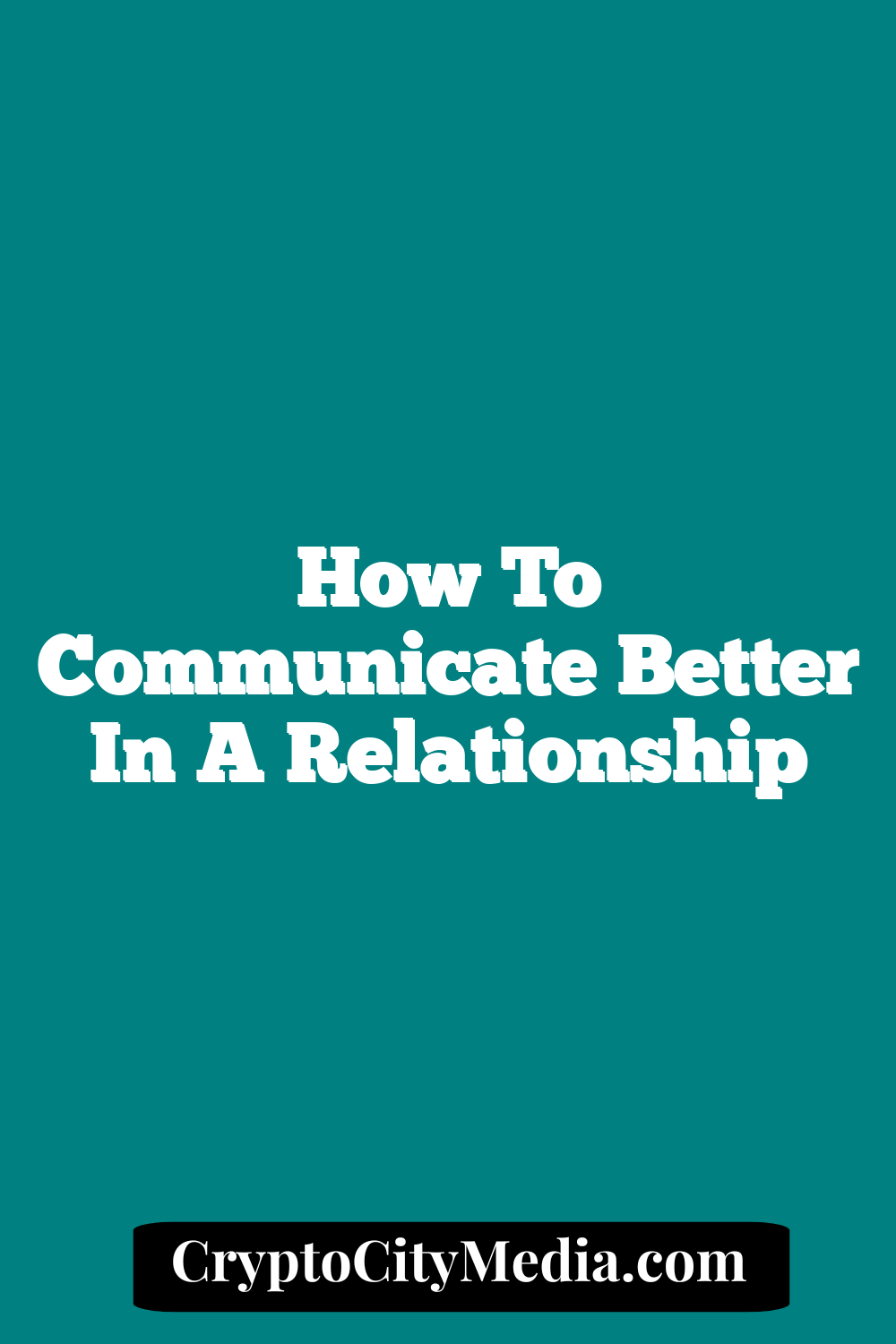
Key questions about communication answered: how to prepare yourself and your partner for conversation (if you have the opportunity for that), how to communicate better in a relationship, and what if conversations always go in the wrong direction.
From a professional standpoint, most couples would survive if people knew how to communicate with each other.
However, good communication is complex and layered. It involves understanding, reading between the lines, listening, encouraging, and, most importantly, diminishing one’s ego to sustain a partnership. And it can be learned with a little concentration.
I hope that this post offers you some suggestions on how to communicate better in a relationship
How Can I Learn To Love Myself: Exact Steps
Obstacles to Good Communication
The primary obstacle to good communication is our ego. But not in the colloquial sense of ego as pride and vanity, but in the way ego is understood in psychological practice.
- Ego resembles vanity and pride, but its actual role is to preserve our self-esteem and self-image. So, you can think of it as a guardian rather than as a forceful, proud person.
When we start communicating with someone, our ego, as part of us, actively listens to and interprets that communication.
The problem is that neither your ego nor your partner’s ego hears exactly what is being said but hears it through its own filters.
You can think of the ego as hearing and understanding things like Google Translate: in its own way and applying its own logic, while the partner might be like someone who writes text with spelling mistakes (those who can’t convey precisely what they meant).
Because of this, when we listen to another person, we hear things our way, and they are not very helpful with their presentation either.
What we hear may reflect what the person is saying, but it doesn’t necessarily mean that’s what they meant.
This happens because:
- We all come from different environments where we have been taught differently to listen and communicate.
- Our personalities react in specific ways.
- The circumstances under which things occur are entirely different, whether we’re talking while upset or calm.
- Our unconscious mind holds a lot that affects how we hear things.
- These are our filters, which cause us to hear and miscommunicate things, and we need to be aware of them.
This is exactly why you need to master some techniques or adopt some tips for better communication. To understand each other, but also to express yourself better, and become happier and freer next to your partner, as they are next to you.
Tips for Better Communication in a Relationship
How to Keep Your Dignity in Relationship
Before the communication (if you have time for this):
- Prepare yourself for your partner’s reactions.
By now, you should know what to expect from your partner and their communication style. Do they attack, defend themselves, or do something else?
If you already know, try to remember how you typically react to them in communication and decide to restrain yourself and respond differently this time.
- Plan your reaction in advance
“If my partner does A, I will do ____________ (I will just listen; I will say: I understand you and will listen to what you are saying.)”
- Change your communication style
By now, you also know how you communicate with your partner. Perhaps your style is specific, such as speaking harshly or aggressively. Maybe you becoming emotional or are accusatory and blame your partner, etc. Up to now, you communicated without thinking, the way you always do (whatever your style is). But you can change that.
You can choose how you will communicate. Let’s say: I will be calm. I’ll just listen, etc. This may be difficult on the spot, but try.
📌 And you must understand that you are not doing this for your partner but for yourself. For yourself, because you are practicing one life-important trait (that you change your habits when you want and that your habits do not control you, but you control them).
An Important Conversation We Need to Have With Ourself
- Announce that you want to talk
And give your partner the option to choose when the conversation will occur.
- Talk when you are both calm and not in an argument
Maybe you and your partner discuss important things only when arguing, but this is obviously not good because you are both caught up in emotions, which are usually unsuitable for constructive conversation (you are angry, sad, tangled up, etc.)
Also, maybe when you have good moments, you don’t want to spoil them with difficult conversations.
But let me ask you: when are you going to talk about things that need to be talked about? When you fight, the conversation is bad, and when you are good, there is no conversation.
When you’re both emotionally well, it’s really necessary to spoil some good days by talking about difficult topics (and unfortunately, you will, because they will probably tell you: you only want to fight! You attack me all the time!).
But you do it to save many other days and turn them into great days.
Anything beyond three is too much. Two is optimal, and one topic is ideal.
People neither can nor like nor want to change many things from one.
Explain to them what you’re doing, that you want to learn how to communicate better, and that you would like the same from them. Then, ask them to follow the steps you’ve read above or suggest how you will communicate.
- Decide how much time you’ll spend talking
It would be good to consider your partner as well. If your partner doesn’t enjoy long conversations, respect that. Of course, the goal is to have a quality conversation, but not one that frustrates your partner.
- Do not have difficult conversations when something else, emotionally demanding, is happening to one of you.
But if emotionally demanding things are part of your life (say, one of you works a stressful job), you must find time to talk about your topics, regardless.
How To Build Self-Confidence: Tips From a Professional
During the conversation
- Behave like an ideal parent
Your primary goal should be to understand your partner’s perspective and for them to understand yours. Just like an ideal parent who doesn’t judge their child but tries to understand and help them and correct things if needed.
- Try to understand what the other person is saying.
At the beginning of the text, I mentioned filters through which we interpret others’ words. Be assured that you often don’t fully understand what your partner is saying, partly because of your filters and partly because they may struggle to express their internal needs and thoughts.
- Allow the other person to decide how the conversation will flow
By doing this, you can send a message that you’re not trapping them, that they can set their own rules, and that you want them to be satisfied with the conversation.
- Put bans on things that don’t suit you (rough talk, mocking, shouting, etc.)
Let’s say your partner raises their voice at you.
Now, the trick is not to get overly emotional, not to get angry, and not to decide to leave.
Instead, say in the calmest tone you can, “OK. Let’s not shout and threaten. Let’s just talk. Let’s try to be nice.” And repeat this, repeat, repeat… like a broken record.
📌 I warn you, this will require a lot of self-control, persistence, and repeated attempts, but now that you know this, you should understand that it is part of the process and agree to it.
This persistence and attempts at self-control are done in the middle of a conversation, and that’s why it isn’t easy, but be in control, not let your emotions control you.
How To Set Boundaries In a Relationship – 12 Steps
When topics are uncomfortable, we tend to shut down and focus on explaining and justifying ourselves, aiming to win the conflict. However, I recommend opening yourself up solely to listening and trying to be fully focused on your partner.
I know that what you hear may be painful, uncomfortable, or something you disagree with, but we’ll get to how you can express your opinions.
- Try not to let emotions drive the conversation
Stay rational, as you would in a business meeting where you need to achieve something. Set aside as many emotions as possible (sadness, anger, etc.).
Don’t defend yourself. If your partner attacks you (perhaps because they didn’t stick to the agreement you made before the conversation), try not to protect yourself but instead:
- Understand that your partner (maybe) isn’t attacking to hurt you but because they don’t know how to communicate.
- Understand that they are hurting and attacking you in self-defense.
- Understand that they are attacking out of habit (they’ve always communicated this way).
Why Don’t You Give Your Partner What They Want?
- Write down all the topics they attacked you on and save them for another conversation.
“Okay, love. I hear what’s bothering you about me, and I’ll note it down so we can talk about it another time. We can right after this conversation. But let’s continue today’s conversation about what we started.”
- Interpret non-verbal communication
If you notice something in your partner’s facial expression or behavior that doesn’t align with what they’re saying, ask them about it. Do they disagree? Encourage them to be open and honest.
- Ask about everything if you understood correctly
Even for things you think you understand perfectly well. You might be surprised. (I wonder if the Google Translate algorithm is sometimes surprised by what we wrote and what it understood 😁).
When you talk about yourself, it is best to talk about your feelings.
The worst thing to do is to talk about your partner.
But talking about feelings is practically neutral. You’re not insisting on anything, not attacking anyone, just sharing how you feel.
Don’t use feelings to manipulate (e.g., “You make me sad”). Avoid putting your partner into the context at all. You can discuss the event and your feelings (e.g., “When we argue, I’m afraid of losing you”).
How To Start Over In a Relationship
- Find solutions that work for both of you
It may take more than one conversation about the same thing.
It may take a longer period for things to settle for both of you and become acceptable, but start with something and then either have more frequent, shorter conversations about it or repeat the discussion over time (a more extended period).
In fact, my suggestion is that you both move a little towards each other.
Let’s say you can’t agree on how often your partner will contact you (suppose they don’t contact you regularly, and you are angry about that). Agree that they will call more regularly on some days, and you will be ok with their absence on other days.
- Be patient with the process.
Given that you’ve communicated in a certain way until now, you can expect the old pattern to continue for a while. So, you can count on the first conversation being a failure and must be patient until you communicate effectively.
If I were to select one thing from this list as the most important, it is repetition of this process and patience. Of course, there are two rules for this:
- If your partner has moved at least a little towards you and you towards your partner, this is a good sign, and you should continue with it.
- It is probably a bad sign if there is no progress even after several months (determine how long you will try this). It is possible that one of you is destructive, and the relationship will never improve or progress.
Suppression, Self-Control and Setting-Goals
- This exact list applies to your partner as well.
If the conversations aren’t going well
- Don’t get disappointed in yourself or your partner; just try again tomorrow.
- Take an emotional time-out.
Say that you can’t continue the conversation at that moment because you’re emotional, and it will only create more problems. Suggest continuing the conversation later.
- Postpone the conversation to a day when you’re calmer.
Decide how long you will try this (make it a few months), and if things don’t change, it’s probably the relationship, and you have to decide what to do with it. Will you adapt to such a partner and such a relationship, or will you give up.
How To Know When It’s Time To Break Up
I hope these tips are clear and useful to you. Dee




